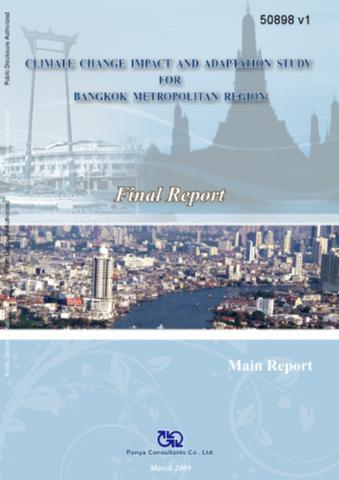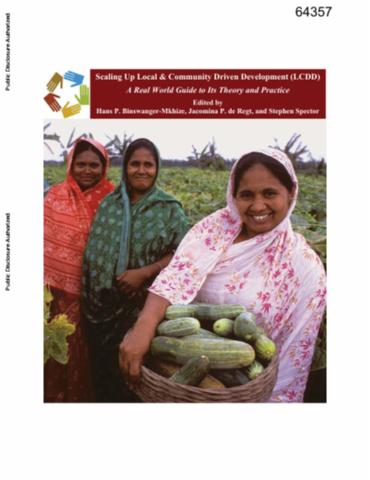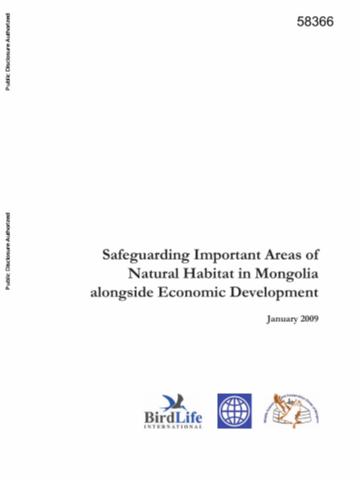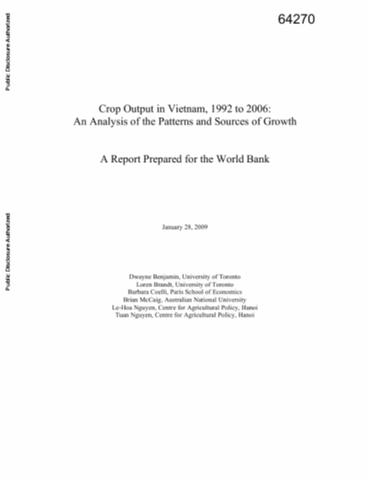The World Bank is a vital source of financial and technical assistance to developing countries around the world. We are not a bank in the ordinary sense but a unique partnership to reduce poverty and support development. The World Bank Group has two ambitious goals: End extreme poverty within a generation and boost shared prosperity.
- To end extreme poverty, the Bank's goal is to decrease the percentage of people living on less than $1.25 a day to no more than 3% by 2030.
- To promote shared prosperity, the goal is to promote income growth of the bottom 40% of the population in each country.
The World Bank Group comprises five institutions managed by their member countries.
The World Bank Group and Land: Working to protect the rights of existing land users and to help secure benefits for smallholder farmers
The World Bank (IBRD and IDA) interacts primarily with governments to increase agricultural productivity, strengthen land tenure policies and improve land governance. More than 90% of the World Bank’s agriculture portfolio focuses on the productivity and access to markets by small holder farmers. Ten percent of our projects focus on the governance of land tenure.
Similarly, investments by the International Finance Corporation (IFC), the World Bank Group’s private sector arm, including those in larger scale enterprises, overwhelmingly support smallholder farmers through improved access to finance, inputs and markets, and as direct suppliers. IFC invests in environmentally and socially sustainable private enterprises in all parts of the value chain (inputs such as irrigation and fertilizers, primary production, processing, transport and storage, traders, and risk management facilities including weather/crop insurance, warehouse financing, etc
For more information, visit the World Bank Group and land and food security (https://www.worldbank.org/en/topic/agriculture/brief/land-and-food-security1
Resources
Displaying 4736 - 4740 of 4907Climate Change Impact and Adaptation Study for Bangkok Metropolitan Region : Final Report
This report is the primary output from the climate change impact and adaptation study for the Bangkok Metropolitan Region (BMR) produced for the Bangkok Metropolitan Administration (BMA) with financial support provided by the World Bank. The report concerns climate change, and provides an analysis of climate change impacts and adaptation options for the BMR. In addition to the more general matters on the physical setting and socioeconomics of BMR, the report considers a number of issues related to climate change in detail.
Scaling up Local and Community Driven Development
Local and Community Driven Development (LCDD) is an approach that gives control of development decisions and resources to community groups and representative local governments. Poor communities receive funds, decide on their use, plan and execute the chosen local projects, and monitor the provision of services that result from it. It improves not just incomes but people's empowerment and governance capacity, the lack of which is a form of poverty as well. LCDD operations have demonstrated effectiveness at delivering results and have received substantial support from the World Bank.
Safeguarding Important Areas of Natural Habitat in Mongolia alongside Economic Development
As market reforms to the Mongolian economy continue and the country enjoys rapid economic growth, the environment has entered a period of unprecedented pressure. Mining, infrastructure development and tourism development, in particular, are undergoing rapid expansion, and all pose risks to Mongolia's globally important biodiversity.
Crop Output in Vietnam, 1992 to 2006
The purpose of this report is to provide a detailed analysis of the behavior of cropping output in agriculture between 1992 and 2006 in Vietnam at both the national and regional level. There are several motivations. The report focuses our analysis on trends with respect to how rapidly output was growing in real terms. The next parts of the chain will link output to farm incomes more directly. First this requires information on the value-added from crop production (gross output value less the cost of intermediate inputs) in order to convert gross revenue into real net income.
Land in Transition: Reform and Poverty in Rural Vietnam
BACK COVER: This book is a case study of Vietnam’s efforts to fight poverty using market-oriented land reforms. In the 1980s and 1990s, the country undertook major institutional reforms, and an impressive reduction in poverty followed. But what role did the reforms play? Did the efficiency gains from reform come at a cost to equity? Were there both winners and losers? Was rising rural landlessness in the wake of reforms a sign of success or failure?










